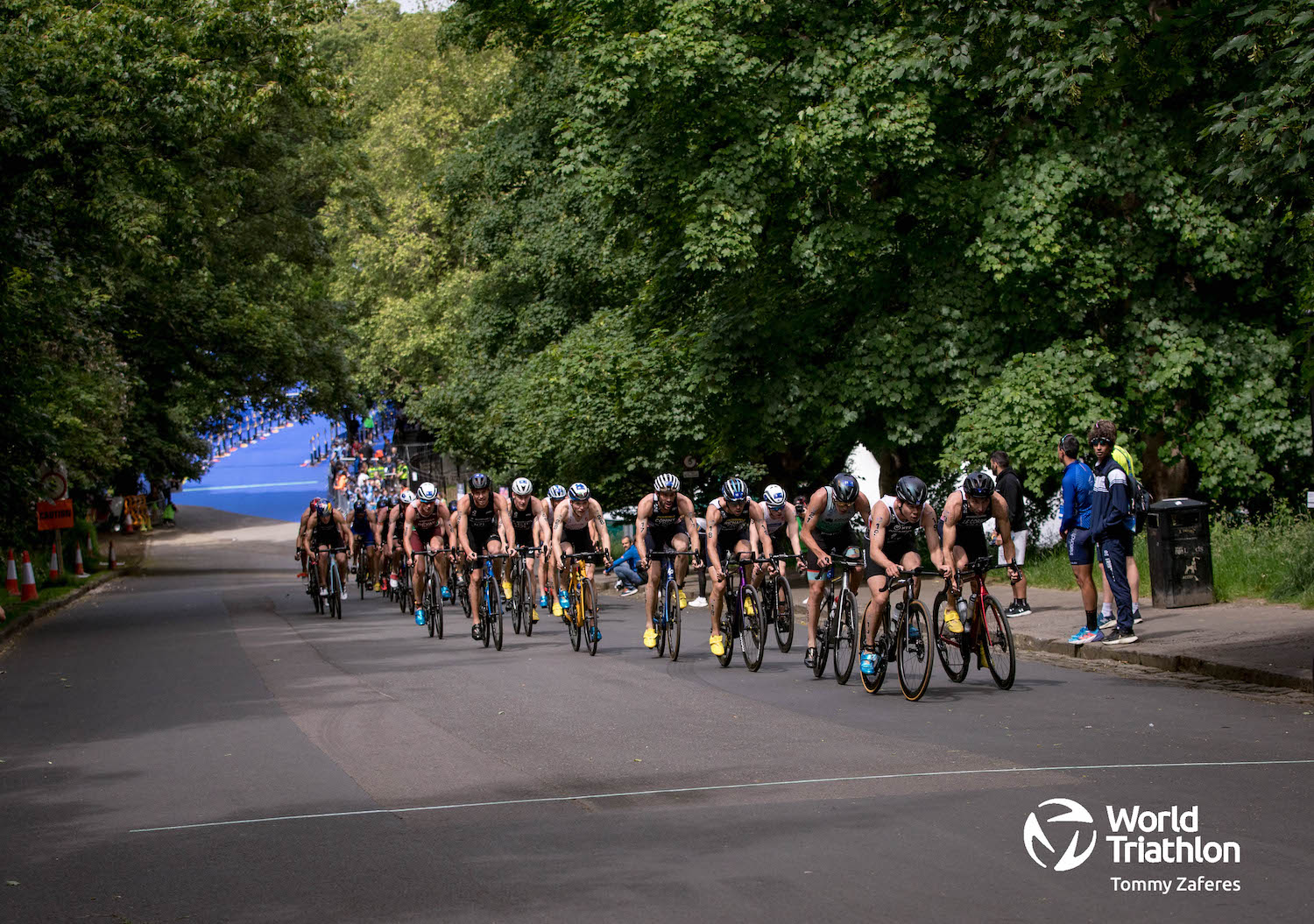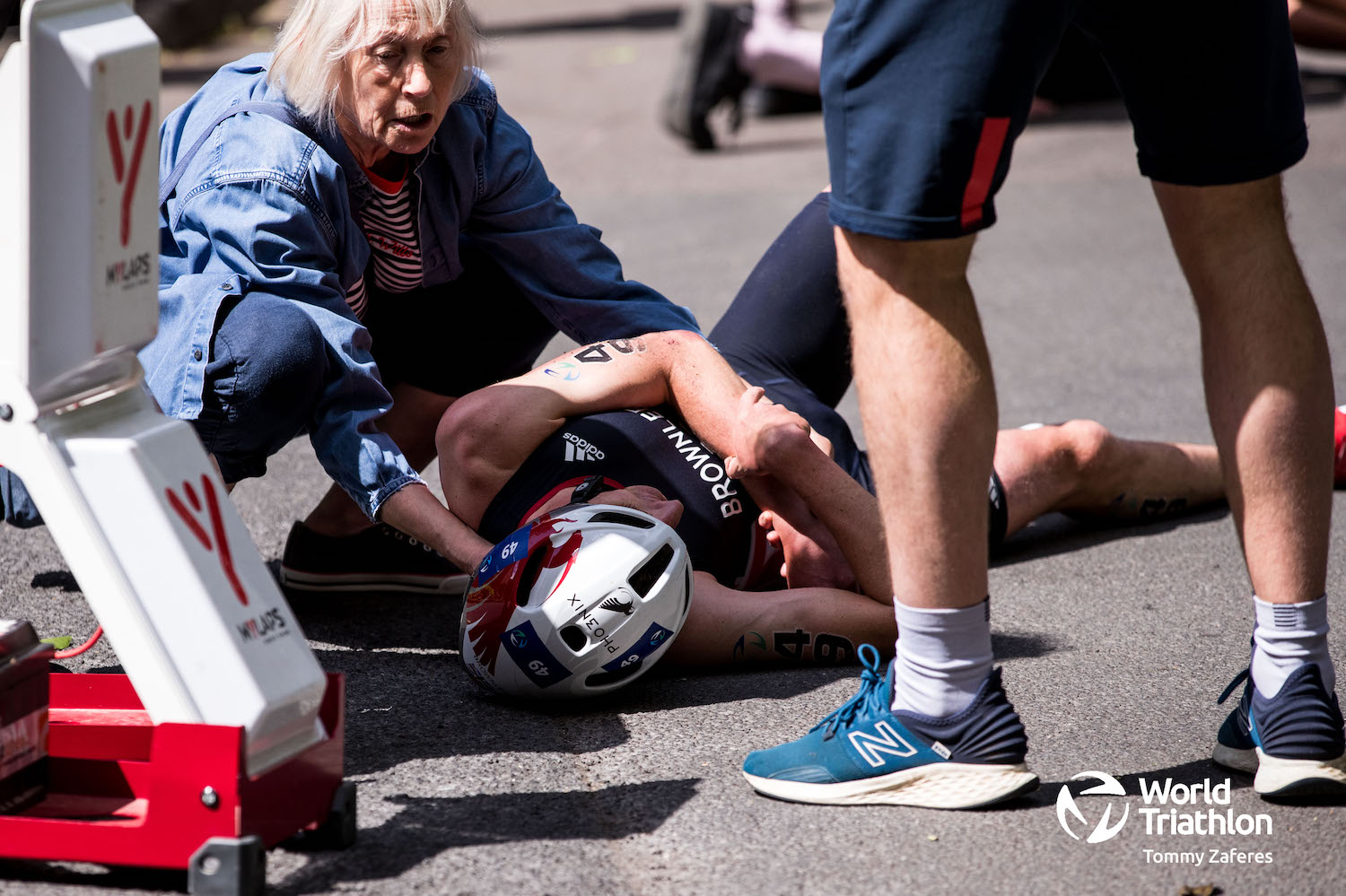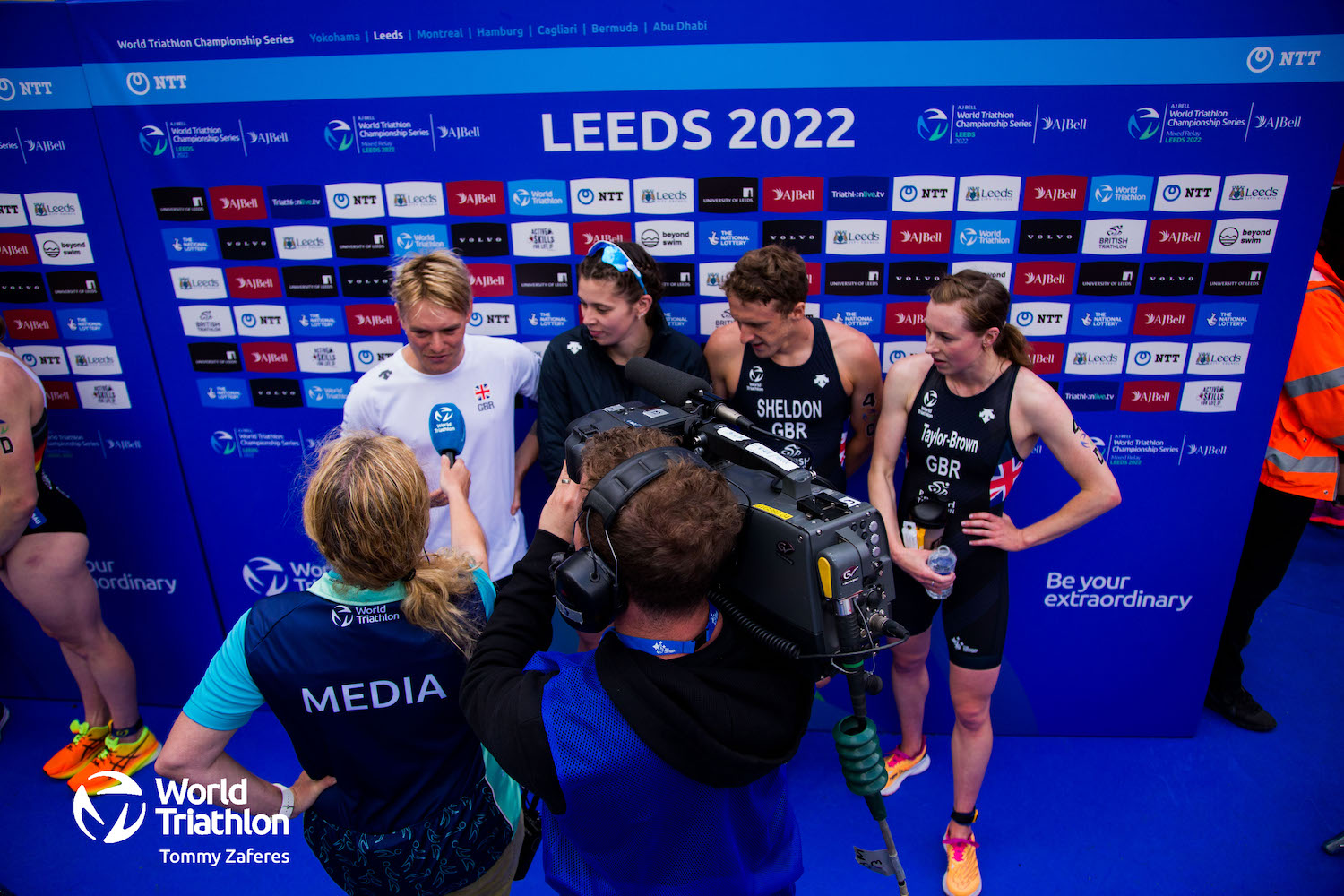Tom Bishop reflects on the rollercoaster of WTCS Leeds
In his latest column, pro triathlete Tom Bishop reflects on a controversial and eventful World Triathlon race in Leeds

Writing this piece in itself will help me decompress from last weekend. It was certainly a rollercoaster for me and many of the team.
The guys at 220 will do a far better job of providing a race report so read no further if that’s what you’re hoping for. This is more of a reflection and insight into racing that no one experiences but the pros.
A bumpy start to race day
A good place to start might be the build into a home race. This is a very strange experience and something that we might have got slightly wrong. We became complacent in the week leading up to WTCS Leeds and didn’t start packing until Friday afternoon. I wouldn’t recommend such laxity to anyone else.
This meant Friday turned into a non-stop 12hrs with bike and swim recces in the morning followed by packing, team meetings, other training and moving into a hotel. Ideally the day before a race needs to be as relaxed as possible.
In reality, this didn’t affect our condition, it’s more that the process of relaxing and switching off helps to calm the nerves and reduce some of the reactive hormones in the body. It’s definitely something I won’t get caught out by again.
On race day we rode as a team to Roundhay Park from Headingley, which is a short 20-minute spin. Jonny and I led the way knowing the roads like the back of our hands. We encountered a little trouble getting through security, our shortcut turning into a long delay, but credit to the security team for allowing no exception.
Once at the park, we all went through the procedures of checking in, warming up, nutrition etc. It becomes automatic after so many years; the challenge is controlling nerves, switching back on and blocking out the noise.
Surviving the swim

The race start is a test of nerves. My ranking saw me second-to-last onto the pontoon, which isn’t strategically a great place to be. For those who don’t know, the edges of the pontoon are the best place to be as you have more space away from the ‘washing machine’. Unfortunately, I was right in the middle.
As the horn went, I had a process to get out hard and then look for the arrowheads – where the faster swimmers get away from the pack. I couldn’t see any. The standard of swimming is so high now that everyone is so densely packed and it’s hard to find space.
This became a big issue when entering the first buoy with over 50 men aiming for an area that’s two metres squared. I could tell 15m out that I was going to be right at the crunch point. Entering the buoy, I tried to move inside on the shortest line but there wasn’t space. I ended up getting dunked just round the buoy, which often happens. but you can usually recover.
What I wasn’t expecting was the grabbing of my wetsuit collar and then a yank back. THIS IS NOT ON. It took the air away from me and compressed my neck. I spent the next 200m trying to catch my breath again and recover from the disorientation it caused. I felt like I was ricocheting between swimmers unable to see due to my goggles being half-off my head.
Eventually, I had to roll on my back, release my wetsuit to catch my breath and rearrange my goggles. I’m all for a bit of contact in swimming but the clenching of one’s fist around another competitor let alone the neck of a wetsuit is wrong on all levels. It’s dangerous and completely against fair play.
I think I must have lost around 20 places during that incident and it left me chasing for the remainder of the race. I managed to swim back through after recovering slightly but the race was really over by that point.
A battle in the mind

I managed to get into a bike pack but we were dangling by 20 seconds most of the way around. The bike course at Leeds was designed for the hardest of races and it suited a break in packs. Punchy climbs, rapid descents and narrow sections favoured the guys up front and in the end, we had to limit our losses.
It’s bad to admit it but when you’re running in the 20s and 30s you don’t have the motivation to really dig deep. I had high expectations of myself going into this race. I knew I was in shape to really compete with the best and when that opportunity has been taken away it’s hard to fight for what isn’t possible anymore.
My Commonwealth Games dream had been ruined by a competitor at the first buoy. I didn’t give up in the run at all, I crossed the line having done what I could. I talk about motivation when you’re in the race, but it massively increases when you’re fighting alongside competitors for those big positions, points and prize money. Triathlon isn’t a lucrative sport, the drop-off is severe and I was a long way off anything worthwhile.
The moment everyone is talking about

I’ve neglected to mention anything about the bike incident involving Jonny Brownlee and Alex Yee. I don’t know the details and I’m reluctant to speculate why. I’ve heard it from Jonny but it isn’t my place to say. The incident was out of order and also dangerous.
We’re a new sport and our code of conduct among fellow athletes isn’t really established, so events like the crash and my incident might continue to happen for a while.
I hope that they both make full recoveries before the Commonwealth Games in Birmingham. It’ll be another fantastic showcase for our sport, especially since the uptake in younger athletes is on the decline.
We need some amazing racing to inspire future generations as London 2012 did. Jonny and Alex’s misfortune gave Grant Sheldon and me a chance to race a rare relay leg for Great Britain. It was a last-minute call-up and we felt the pressure.
- Team England triathletes announced for Commonwealth Games
- Team England announces paratriathletes for Commonwealth Games
Stepping up to the plate

Our pre-race meeting laid it on heavy, the first relay of a new cycle, following the Olympic gold medal race. There was an expectation and we felt the disappointment from management that we weren’t the first choice.
Grant and I shared a room and we both just wanted each other not to fuck up. The girls in our team would do the real racing, we just had to stay in the game. I was the first leg, which terrified me, especially given the fact that most teams front-loaded their legs with fast swimmers. I was getting flashbacks from the choking 24hrs earlier.
I swam well, found myself off the front of the bike after the first lap and decided to keep the pressure on. It gave me a clear transition and my leg handed over still in contact with the leaders. Not amazing but not too shabby either.
You all know what happened subsequently. The team did brilliantly and we came in second with some absolutely outstanding legs from our girls Sophie Coldwell and Georgia Taylor-Brown. Grant did what he wanted to do and kept us in the race like me. We knew where we stood and we did ourselves proud given the expectation laid on us.
“Racing is brutal”

Readers, you may feel like the racing we do is fun, fast and furious, which it is, especially to those who see themselves on the podium most weeks. But for those who are racing to save their careers, it’s quite different.
For me, after having some success a few years ago, racing has become hard. I’m striving to get back to where I’ve been before in a field of ever-rising ability. Gaps are as tight as they have ever been and one mistake or issue in a race costs you a lot more than it once did.
Racing is brutal. It’s also rewarding and the opportunity I got on Sunday was amazing. I wanted to show how much I had worked for this event in my home city. I couldn’t the day before, but I was certain to show that I could give a little bit more.
A silver medal at WTCS relay event is something not everyone will remember in their careers, but I certainly will. I haven’t been on a podium of that level for four years, so it’s something I will treasure.
Top image credit: Ben Lumley




